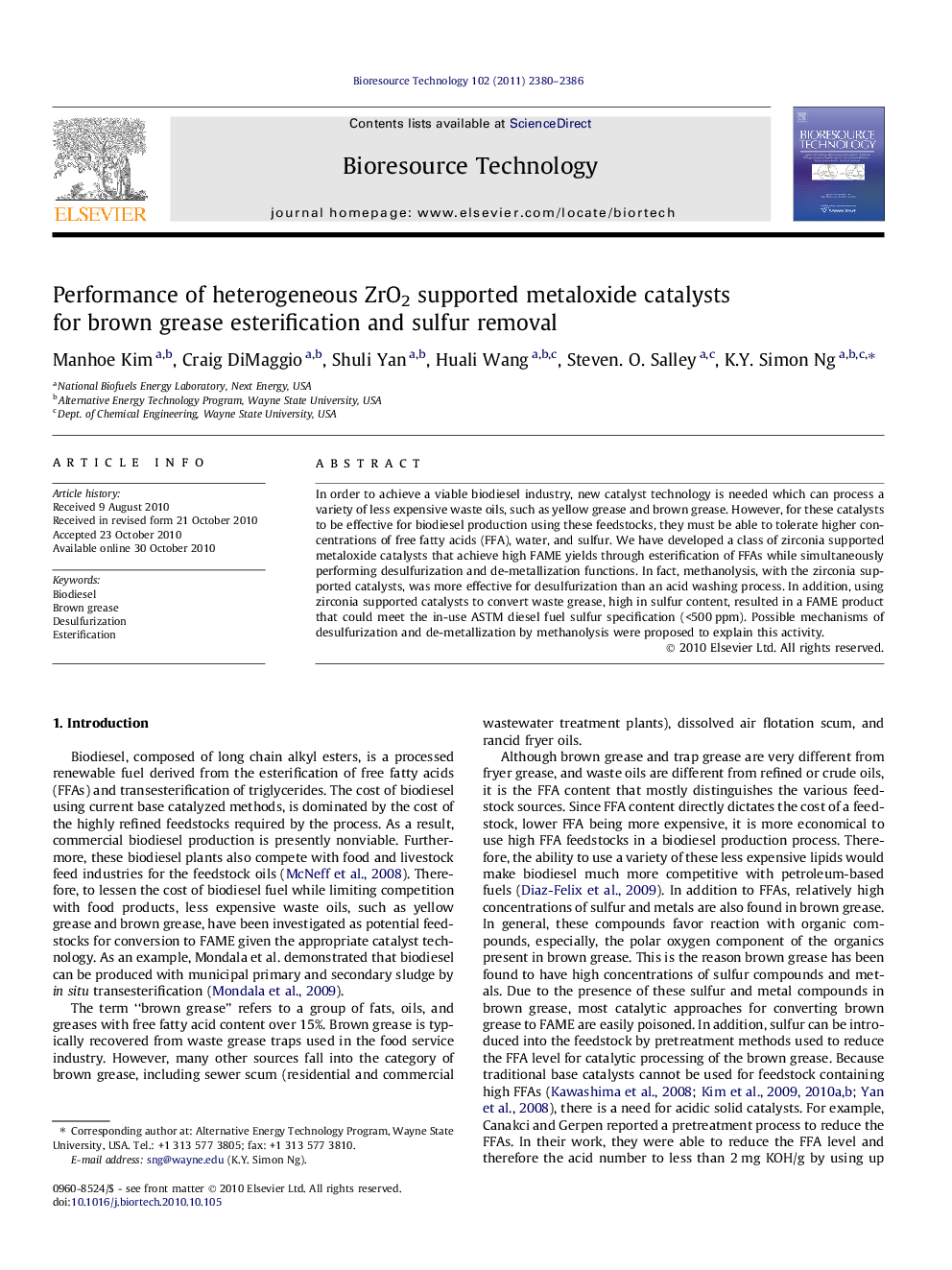| Article ID | Journal | Published Year | Pages | File Type |
|---|---|---|---|---|
| 10395349 | Bioresource Technology | 2011 | 7 Pages |
Abstract
In order to achieve a viable biodiesel industry, new catalyst technology is needed which can process a variety of less expensive waste oils, such as yellow grease and brown grease. However, for these catalysts to be effective for biodiesel production using these feedstocks, they must be able to tolerate higher concentrations of free fatty acids (FFA), water, and sulfur. We have developed a class of zirconia supported metaloxide catalysts that achieve high FAME yields through esterification of FFAs while simultaneously performing desulfurization and de-metallization functions. In fact, methanolysis, with the zirconia supported catalysts, was more effective for desulfurization than an acid washing process. In addition, using zirconia supported catalysts to convert waste grease, high in sulfur content, resulted in a FAME product that could meet the in-use ASTM diesel fuel sulfur specification (<500Â ppm). Possible mechanisms of desulfurization and de-metallization by methanolysis were proposed to explain this activity.
Related Topics
Physical Sciences and Engineering
Chemical Engineering
Process Chemistry and Technology
Authors
Manhoe Kim, Craig DiMaggio, Shuli Yan, Huali Wang, Steven. O. Salley, K.Y. Simon Ng,
